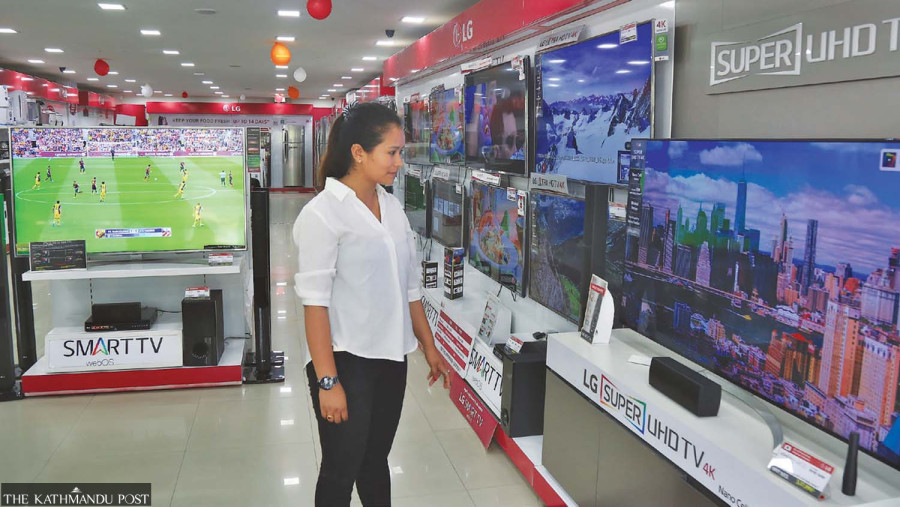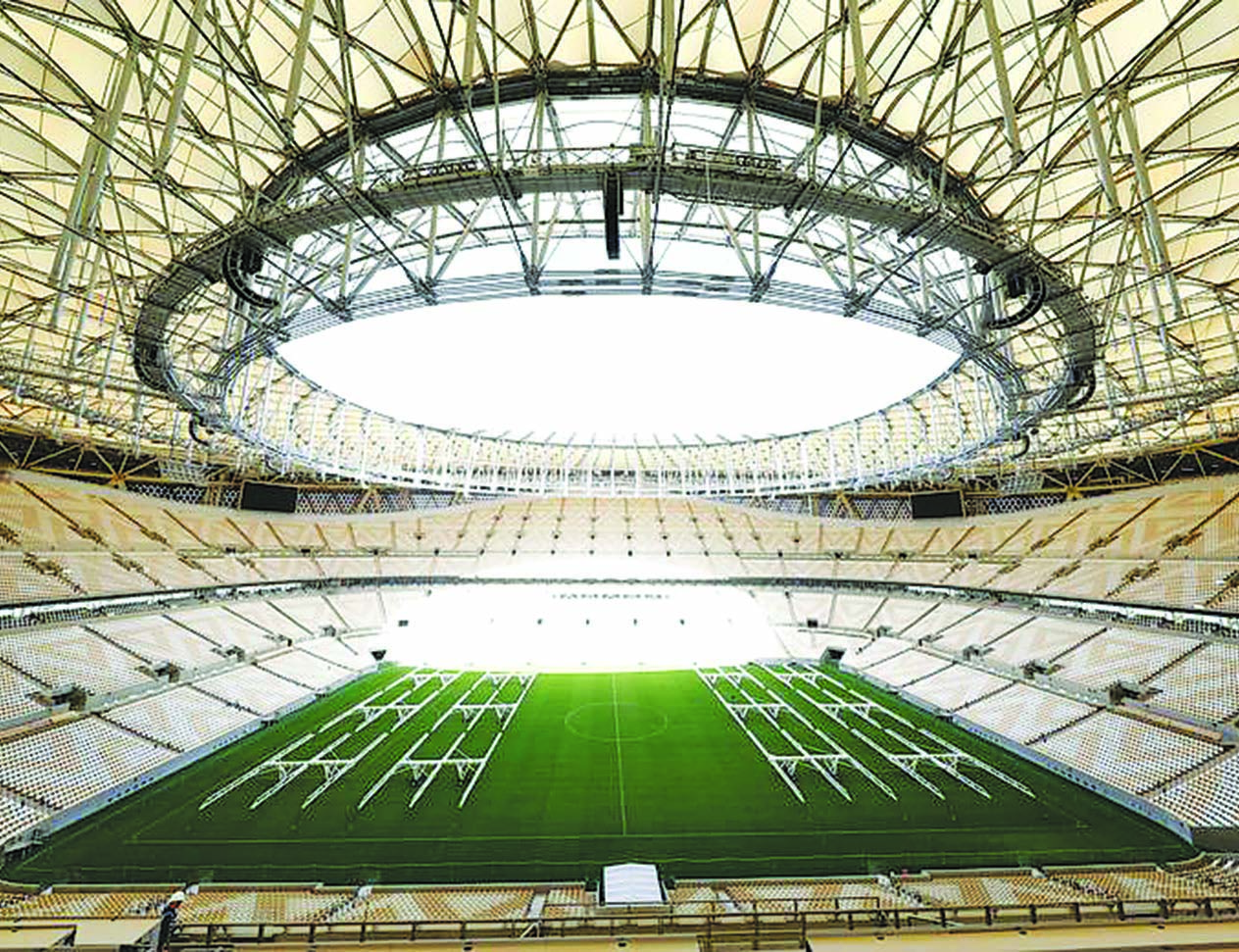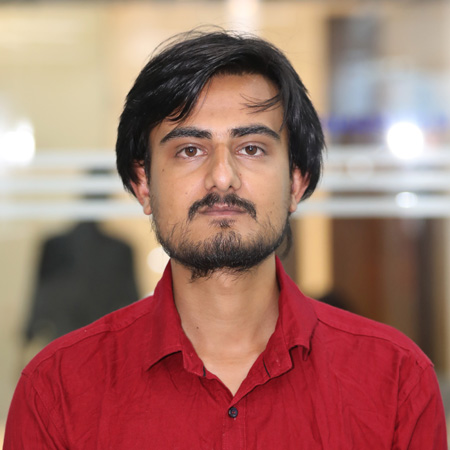Money
TV viewers will have to pay a premium to watch FIFA World Cup
Besides regular payments to the cable company, consumers will have to fork out Rs500 per television set.
Pawan Pandey
The latest update on the World Cup is that Nepali football fans will have to shell out extra money to watch the games on television.
Like the rest of humanity, Nepalis will be watching, talking and thinking football for an entire month as the FIFA World Cup gets underway in Qatar on November 20. But during this edition of the four-yearly tournament, Nepali fans will not get to watch it on television for a nominal fee like in the past.
The FIFA World Cup is among the rare sporting events that is broadcast live all over the world.
FIFA President Gianni Infantino said in a recent statement that the 2022 World Cup in Qatar is expected to be the most watched in the tournament’s history, with the president of soccer’s global governing body projecting five billion viewers to tune in.
The last World Cup was watched by 4 billion people, said Infantino, speaking at the World Economic Forum’s annual meeting in May.
Media Hub, which has obtained exclusive broadcasting rights in Nepal, said usually advertisements would cover the cost of the broadcast. But this year, viewers might have to pay extra.
Consumer rights activists say the additional charge is an “unfair trade practice”.
The cost may be Rs500 per television set on top of the regular subscription fee consumers have been paying to their cable company, insiders say.
“We got the broadcasting rights from FIFA through Viacom18 Media Private Limited, an Indian media and entertainment company,” Som Dhital, the executive director of Media Hub, announced recently in Kathmandu.
The company has bid for the broadcast rights for around Rs250 million for the month-long event. And an additional Rs150 million will be required for promotional activities and technical support.
"This makes for a total investment of Rs400 million, and it may come to around Rs500 per set-top box," said Siddhartha Dhital, marketing director at Media Hub.
“A pay channel will be created separately, and viewers will have to pay to unlock it. We believe the amount is affordable.”
The Post couldn’t independently verify whether internet service providers too would charge separately to stream live videos of the football matches.
“One of the reasons we need to charge customers is the slowdown in the advertisement market,” said Dhital.
Industry insiders say Media Hub initially thought that advertisement revenues would be enough to cover the costs, but the broadcast rights were so expensive that all calculations went awry.
“The option was to charge the customers,” they said.
According to reports, the 2022 World Cup in Qatar is the most expensive World Cup in history.
The costs associated with Qatar’s new stadiums have been reported in the range of $6.5 billion to $10 billion—a significant increase from the proposed $4 billion in the initial bid.
Though it will be the first-of-its-kind practice in Nepal, charging an extra amount during big sporting events is an established norm in many countries, broadcasters say.
“Obviously, viewers are charged extra to watch big sporting events around the world,” said Sudhir Parajuli, president of the Federation of Nepal Cable Television Association. “The practice of pay channels exists in India as well.”
But the rate has not been decided yet, according to Parajuli. “It may cost Rs300 or Rs500 or even Rs800 per set-top box,” he said.
Sudeep Acharya, managing director of Dish Media Network which operates direct-to-home satellite television service Dish Home, seconded Parajuli.
“If a Nepali company had not bought the media rights, it was doubtful whether the matches would be broadcast in Nepal," Acharya said.
“Previously, Sony used to sell the package,” said Acharya. “But none of the Indian broadcasters, who hold the media rights to show the World Cup matches this time, had channels with distribution rights in Nepal. The company which won the media rights for the Indian subcontinent has not obtained the broadcasting rights in Nepal,” said Acharya.

According to him, Dish Home is yet to sign a contract to broadcast the matches.
“It has not been decided how much extra viewers will have to pay. On a positive note, this step might boost the commercialisation of Nepali content in the coming days," Acharya added.
Football fans say viewers must be given priority over business profits.
“It is wrong to charge the viewers an extra amount to watch the World Cup which Nepalis have been doing for decades,” said Gopal Tiwari, an avid football fan from Kathmandu.
“It might be beneficial for the broadcasters, but the concern of the audience should have been a priority. As long as one can watch the matches, I don’t think it matters much whether it is being viewed on national or international channels."
Siddhartha Dhital, marketing director of Media Hub, agrees with Tiwari’s sentiments. But he argues that the move will help promote Nepali channels.
“We faced various advertisement-related issues in the last edition of the World Cup in 2018 when we had non-exclusive broadcasting rights,” Dhital said, “We also felt that Nepali channels were ignored because of the availability of foreign channels.”
Moreover, Dhital believes the move will attract the attention of foreign advertisers to invest in Nepali channels.
Som Dhital, who is also president of the Advertising Association of Nepal, said that they had two options when making the deal—buy the more expensive exclusive rights or the less expensive non-exclusive rights.
“But, we took a bold step to acquire exclusive rights because of the bitter experiences we had with Sony and some multiple system operators (MSO) and cable operators in Nepal,” he said.
The slowdown in the advertising market after the Covid-19 pandemic compelled broadcasters to charge money from viewers, insiders say.
Football enthusiast Ramesh Pandey who works at Nepal Life Capital, said it would have been ideal for the viewers if the national channel had bought the broadcasting rights and streamed the games for free throughout the country.
“However, a private company has acquired the rights and it is a business,” he said.
Consumer rights activists argue that the extra payment will only add to the burden of consumers who are in economic shock because of the Covid-19 pandemic, a steep rise in fuel prices and increased cost of living.
“It is a cartel,” said Madhav Timalsina, president of the Consumer Rights Investigation Forum.
“From the consumer's perspective, it is an unfair trade practice to compel viewers to fork out an extra amount when they have already paid a subscription fee to their cable operators. The authorities concerned need to monitor such practices to protect consumers."
It’s not sure whether internet service providers may charge separately to stream live videos of the event.
“We are also in talks with Nepal Telecom and Ncell Axiata to provide over-the-top media service for broadcasting the matches on their apps,” said Dhital, the marketing director at Media Hub.
“The talks with Media Hub are in the preliminary stage,” said Ranjeet Lohia, deputy spokesperson at Nepal Telecom. “The modality of the broadcast is yet to be decided.”
For the first time in history, a Middle Eastern country is hosting the World Cup football. The tournament in Qatar will continue until December 18. A total of 64 matches will be played during the championship.




 13.25°C Kathmandu
13.25°C Kathmandu














